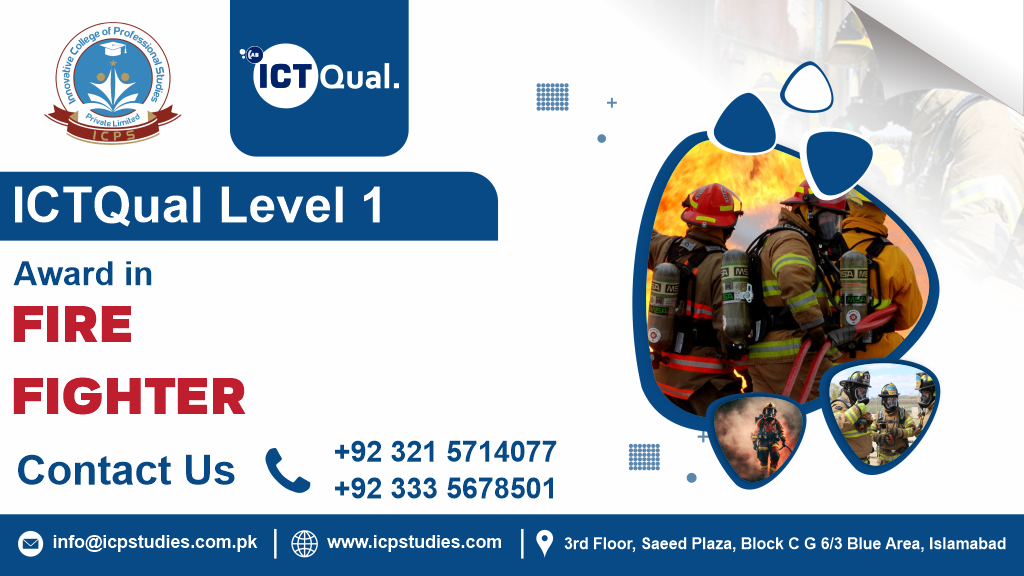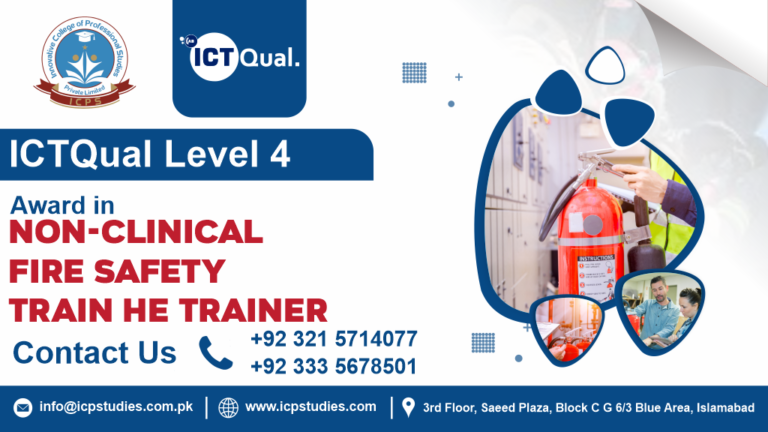In communities around the world, firefighters are often regarded as modern-day heroes, bravely rushing into danger to protect lives and property. If you’ve ever considered stepping into this noble and challenging role, the Level 1 Award in Fire Fighter might be your first step towards making a difference in your community.
The Level 1 Award in Fire Fighter is an introductory course designed to provide participants with foundational knowledge and skills essential for a career in firefighting. Whether you’re a school leaver exploring your career options or someone looking to change careers to pursue a more impactful role, this course serves as an entry point into the firefighting profession.
Level 1 Award in Fire Fighter provides the essential skills and knowledge needed to begin this journey. Whether you’re drawn to the adrenaline of emergency response or the satisfaction of helping others, this course equips you with the foundation to pursue a fulfilling career in firefighting.
All About ICTQual Level 1 Award in Fire Fighter
Course Overview
The Level 1 Award in Fire Fighter is an introductory qualification aimed at individuals who are interested in pursuing a career in firefighting or related emergency services. This course provides foundational training and essential knowledge necessary for entry-level positions within fire departments or emergency response teams.
The Level 1 Award in Fire Fighter provides foundational training that prepares individuals for the dynamic and demanding role of a firefighter. It equips participants with essential skills in firefighting, emergency response, and fire safety, laying the groundwork for a successful career dedicated to protecting lives and property. If you are considering a career in firefighting and are ready to embark on a path of service and bravery, the Level 1 Award in Fire Fighter could be your first step towards achieving that goal.
Study Units
- Introduction to Firefighting
- Fire Behavior and Types
- Firefighting Equipment and Techniques
- Safety Protocols and Personal Protective Equipment (PPE)
- Emergency Response and Rescue Operations
- Legislative and Regulatory Requirements
Admission Criteria
The Level 1 Award in Fire Fighter course is ideal for individuals who:
- Aspire to Become Firefighters: It is suited for those who have a strong passion for serving their community and are eager to pursue a career in firefighting or related emergency services.
- Seek a Challenging and Dynamic Career: Individuals looking for a career that involves quick thinking, physical agility, and the ability to handle high-pressure situations effectively.
- Value Public Safety and Protection: People who are committed to safeguarding lives, property, and the environment from fire hazards and emergencies.
- Are Ready to Learn and Grow: This course welcomes those who are eager to acquire new skills and knowledge in fire safety, firefighting techniques, and emergency response.
- Are Physically Fit and Health-Conscious: Candidates should be in good physical condition and demonstrate the capability to meet the physical demands of firefighting activities.
- Possess Strong Communication and Teamwork Skills: Effective communication and teamwork are essential in firefighting. This course is suitable for individuals who can work collaboratively in a team environment.
- Are Starting Their Career Journey: Whether you are a recent high school graduate or considering a career change, this course provides a foundational entry point into the firefighting profession.
Ideal Candidate
Minimum Age:
- Applicants must be at least [minimum age requirement, e.g., 18 years old] at the time of enrollment.
Educational Background:
- Completion of secondary education (high school diploma or equivalent) is typically required.
Physical Fitness:
- Demonstrated ability to meet basic physical fitness standards necessary for firefighting activities, including agility and strength assessments.
Health and Medical Fitness:
- Applicants must provide evidence of good health and medical fitness to undertake rigorous physical activities and emergency response training. A medical clearance certificate may be required.
Language Proficiency:
- Proficiency in the language of instruction (e.g., English) may be required. Applicants may need to provide proof of language proficiency through standardized tests (e.g., TOEFL, IELTS) if applicable.
Additional Requirements:
- Depending on the institution or training provider, additional requirements such as background checks, drug tests, or interviews may be part of the admission process.
Commitment to Safety and Public Service:
- Demonstrated commitment to safety, public service, and the ability to work effectively in high-pressure situations.
Pre-requisite Knowledge:
- While not mandatory, having basic knowledge or experience in fire safety, emergency response, or related fields may be advantageous.
Learning Outcome
Introduction to Firefighting
- Learning Outcomes:
- Understand the role and responsibilities of firefighters within the community.
- Explain the importance of teamwork and communication in firefighting operations.
- Identify the basic principles of fire dynamics and the factors influencing fire behavior.
- Describe the career pathways and opportunities within the firefighting profession.
Fire Behavior and Types
- Learning Outcomes:
- Analyze different types of fire behavior, including combustion processes and fire spread mechanisms.
- Classify various types of fires based on their sources, fuel, and environmental conditions.
- Evaluate the potential hazards associated with different fire types and their implications for firefighting strategies.
- Demonstrate knowledge of fire behavior prediction and control methods.
Firefighting Equipment and Techniques
- Learning Outcomes:
- Identify and describe the function of essential firefighting equipment and tools.
- Demonstrate proficiency in the safe handling and operation of firefighting equipment.
- Apply basic firefighting techniques, including fire suppression methods and ventilation procedures.
- Evaluate the effectiveness of equipment and techniques in different firefighting scenarios.
Safety Protocols and Personal Protective Equipment (PPE)
- Learning Outcomes:
- Understand the importance of safety protocols and standard operating procedures (SOPs) in firefighting.
- Explain the principles of risk assessment and hazard mitigation in fire-related activities.
- Identify and use appropriate personal protective equipment (PPE) according to regulatory standards and best practices.
- Demonstrate knowledge of emergency response protocols and evacuation procedures.
Emergency Response and Rescue Operations
- Learning Outcomes:
- Plan and execute emergency response strategies for various types of incidents, including structure fires and hazardous materials incidents.
- Coordinate rescue operations and provide immediate assistance to victims in emergency situations.
- Apply effective communication and decision-making skills during high-pressure scenarios.
- Evaluate the effectiveness of emergency response actions and adapt strategies as necessary.
Legislative and Regulatory Requirements
- Learning Outcomes:
- Identify and interpret legislative and regulatory frameworks governing firefighting and emergency response.
- Explain the roles and responsibilities of firefighting organizations within the context of national and international standards.
- Demonstrate compliance with legal requirements and ethical considerations in firefighting operations.
- Analyze case studies and scenarios to apply knowledge of legislative requirements to practical situations.
These learning outcomes provide a comprehensive overview of the knowledge and skills participants are expected to gain from each study unit within the Level 1 Award in Fire Fighter course.
FAQs about ICTQual Level 1 Award in Fire Fighter







